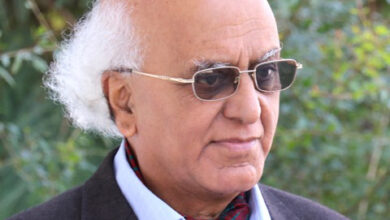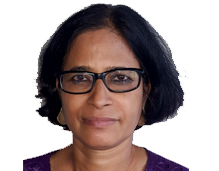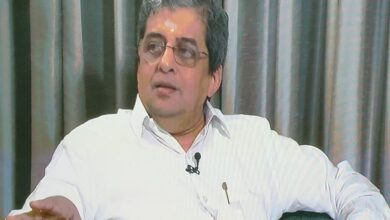American Social Media: Understanding and Preventing Regime Change Operations in Bangladesh
Often local actors, led by external actors, use American social media to challenge the legitimacy of a government in the name of exposing its corruption or its alleged human rights abuses. This was seen in the case of the America-led colour revolution in Arabian countries.

Dhaka: Social media has recently played a significant role in regime change operations in many countries. Particularly American platforms like Twitter, Facebook, YouTube, Google, and current AI make it easy for their ever-increasing users to connect with others who share their political views and organize protests. This was seen in the Arab Spring, where social media like Twitter, Facebook, YouTube and Google were used to organize protests against regimes in Tunisia, Egypt, and Libya.
We also see how American social media can be used to spread disinformation about a regime’s alleged abuses or oppression. Even during the Rohingya genocide in Myanmar, American social media like Facebook and Twitter were used to spread hate speech and incite violence against the Rohingya minority.
Often local actors, led by external actors, use American social media to challenge the legitimacy of a government in the name of exposing its corruption or its alleged human rights abuses. This was seen in the case of the America-led colour revolution in Arabian countries.
A flowchart illustrates how an America-led regime change operation is being played out in a target country. Black lines symbolize the regime change ‘Push’ with amplifying minor failures of the regime in different means, and the Red line represents data pulling for further use.

In the context of Bangladesh
Since social media has emerged as a powerful tool in shaping political landscapes worldwide, in strategically important countries like Bangladesh, where political stability is crucial for regional and global interests, the manipulation of social media for regime change poses a unique set of challenges.
In Bangladesh, American social media provides a platform for the rapid and uncontrolled spread of propaganda, misinformation, and fake news. Malicious actors exploit this capability to manipulate public opinion and undermine the credibility of the current regime.
These social media allow the West for unhindered social engineering and enable anti-government voices to unite, organize, and amplify their grievances against the government, which escalates into destabilizing political protests or movements seeking regime change. For example, the 2018 Road Safety Movement in Bangladesh gained momentum through social media, leading to widespread protests demanding political reforms and challenging the incumbent government.
It is also evident in Bangladesh that foreign entities which are hostile to the current government are exploiting social media to influence public sentiment and promote narratives aligned with American as well as European interests, aiming to destabilize the political climate and facilitate regime change for bigger geopolitical and geostrategic gains against China, Russia and to an extent India.
Besides, there is an allegation that American intelligence agencies like the cyber-criminal gangs use ‘bots’ for the following technic to influence online or digital cyberspace.

1. They use ‘bots’ to send phishing emails or text messages that appear to be from a legitimate source. These emails or text messages may contain malicious links or attachments that, when clicked or opened, can install malware on the victim’s computer.
2. Bots are also used to make scam calls that may appear from a legitimate company, such as a bank or credit card company. The caller may ask the victim for personal information, such as their Social Security or credit card numbers.
3. They use bots to create fake profiles on social media platforms. These profiles may be used to impersonate real people or to spread hatred and misinformation against the regime.

4. They also use botnets, a network of computers infected with malware and controlled by a botmaster. Botnets can be used to launch various attacks, including DDoS attacks, spam campaigns, and phishing attacks.
Additionally, it is also apparent that these American social media always run on American agenda and Western double standards. They often block or ban their users who are critical of American and Western policies. These help them spread the American or Western version of a story monopolistic among the unaware change makers and use them as idiots fighting against their own government.
How can Bangladesh protect itself from the social engineering of American social media?
The simple answer to this question is that Bangladesh must apply and implement a course to reverse engineer the American and Western regime change strategy, which they plan to televise on social media.
1st and foremost important task is to Employ Enhanced Social Media Regulation. The government must immediately strengthen the legal frameworks to regulate and control the businesses of American social media platforms for spreading misinformation, incitement of violence, or foreign interference. If those American companies fail to collaborate with Bangladesh to develop policies that ensure the responsible use of platforms and minimize malicious activities, Bangladesh should restrict social media uses for people below 50 years. Only senior citizens can use Facebook or other social media.
Besides, it is necessary to launch a Digital Literacy and Awareness Campaign.

The government should take a crash program by investing in education and awareness initiatives in all learning centres, including religious ones, to enhance digital literacy. This can empower them to identify and counter disinformation campaigns and improve their ability to assess the local and foreign content they encounter online critically.
Additionally, strengthening security institutions, ensuring transparent security and encouraging open dialogue among people and intelligentsia can foster resilience against external attempts to destabilize the political system of Bangladesh.
Conclusion
Since American social media plays a critical role in shaping public sentiment and political discourse towards destabilization in a strategically important country like Bangladesh, the government needs to be aware of these challenges and adopt proactive measures to address them effectively. Reversing the course of Western social engineering by regulating social media responsibly, promoting digital literacy, and strengthening security institutions, Bangladesh can safeguard its political stability and protect its national interests in the face of emerging Western threats in the digital age.
Written by Rajeev Ahmed
Geopolitical Analyst, Strategic Thinker and Editor at geopolits.com




